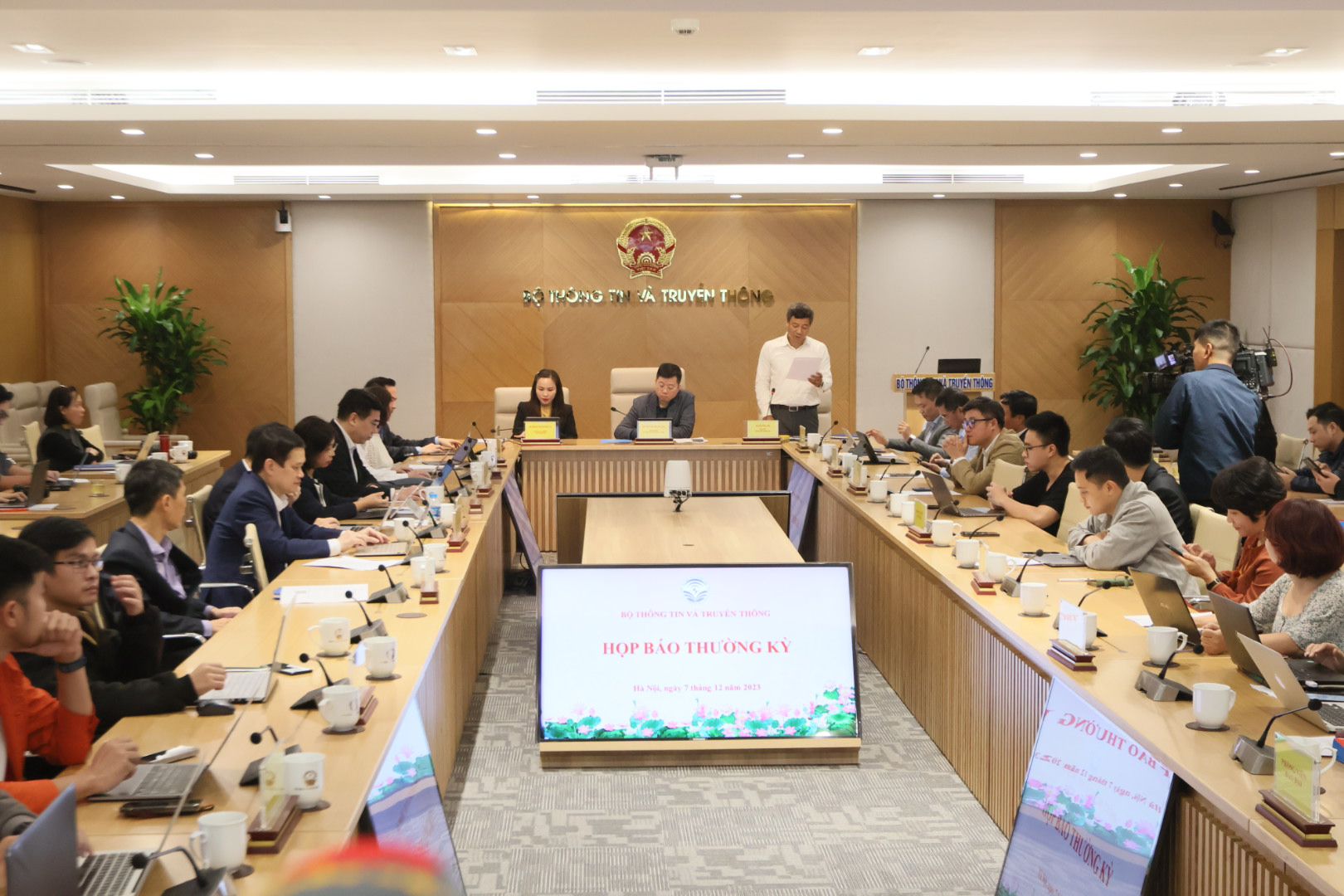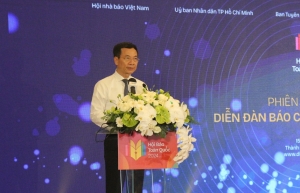New digital rules to reshape tech market
The draft Law on Digital Technology Industry is currently gathering input from agencies and stakeholders, and is planned to be discussed at the ongoing eighth session of the National Assembly (NA).
 |
| New digital rules to reshape tech market, Source: freepik.com |
Minister of Information and Communications Nguyen Manh Hung said, “This law will not only advance the digital technology industry but also foster the development of domestic digital technology enterprises, shifting from processing and assembly activities to innovation, design, production, and mastery of core technologies.”
The draft law, which consists of eight chapters and 73 articles, focuses on key areas such as digital technology research and development (R&D), digital infrastructure, digital ecosystems, and technical standards.
A notable highlight of the draft law is the inclusion of provisions on the semiconductor industry and AI. Minister Hung proposed altering the terminology from “semiconductor microchip” to “semiconductor” to ensure comprehensive coverage of all stages in this industry, from production and design to technology integration.
The semiconductor industry is regarded as a crucial sub-sector of the digital technology industry and plays a decisive role in the global value chain. One chapter of the draft law is dedicated to regulating this industry, affirming its significance for Vietnam’s economic development. It also calls for building strategies and specific policy mechanisms to support the industry’s growth at every stage.
The draft law also includes policies designed to encourage the development of a highly skilled workforce of researchers and experts in the digital technology sector. Additionally, it supports the creation and execution of key research programmes and encourages large technology corporations to invest in and establish R&D centres in Vietnam.
In terms of incentives, the draft law proposes specific policies for digital technology enterprises and projects, focusing on investment, tax, credit, and high technology incentives.
Experts agree that the digital technology industry has become one of the fastest-growing economic and technical sectors. As a result, Vietnam needs to establish a clear legal framework and implement breakthrough policies to position the industry as a spearhead of the economy.
Senior technology expert Tien Hoang noted that the draft law will address existing gaps in the implementation of the law on IT and propose breakthrough policies to limit risks while promoting the growth of the digital technology industry.
“It will provide a legal framework to transform the digital technology industry into an economic sector that makes a significant contribution to the country’s economy. It will also promote the transition of Vietnamese digital technology enterprises from assembly and processing to innovation, design, production, and the mastery of core technologies, thereby creating a market for domestically designed and manufactured products,” he said.
NA Vice Chairwoman Nguyen Thi Thanh stressed that the draft law must establish a strong legal foundation to support the rapid growth of Vietnamese digital tech enterprises, helping them meet the requirements of the digital transformation process.
“There is a need for preferential policies to boost sectors such as semiconductors, AI, and software. These incentives will motivate businesses and help Vietnam quickly catch up with, and even lead, advanced technology industries,” she said.
During the review of the draft law, Le Quang Huy, who is the Chairman of the NA’s Committee for Science, Technology, and Environment, remarked that the draft has largely institutionalised Party and state policies on the development of the digital technology industry. However, he recommended that careful consideration be given to the relationship between the draft law and the existing law on IT to ensure consistency and feasibility.
Huy also suggested that the law on IT be replaced, expanding the scope of regulations in the draft law on the digital technology industry to cover all related fields.
Vietnam is becoming increasingly attractive to international technology businesses looking for new opportunities. In recent days, Ericsson signed agreements with major Vietnamese mobile network operators such as VNPT, MobiFone, and Viettel to deploy its 5G products and services across most cities and provinces in Vietnam, with 5G expected to be commercialised by early 2025.
Meanwhile, Amazon Web Services is expanding its customer base in Vietnam, partnering with VPBank and Techcombank, which have adopted new technologies like GenAI from the boardroom to the executive departments.
Recognising the potential of the semiconductor industry, Japanese robotics firm Rorze is also planning to invest an additional $330 million to construct a Robotech factory in the northern city of Haiphong by 2027. The facility will span over 238,000 square metres. Similarly, South Korea’s SK Group has acquired shares in ISCVina Manufacturing Co., Ltd., a semiconductor manufacturer in the northern province of Vinh Phuc, with a total investment of $300 million. In a recent meeting with local authorities, the company sought support to expand its operations in Vietnam.
 | Vietnam to host development of digital technology enterprises forum The Ministry of Information and Communications (MIC) will organise the national forum on development of Vietnamese digital technology enterprises in the northern province of Quang Ninh on December 11. |
 | Digital technology, internet innovating journalism Digital technology, the internet and social media are strong incentives to innovate journalism and the main source of revenue for journalism will come from cyberspace. |
 | Utilising digital technology to leverage cultural heritage strengths Digital solutions aimed at developing Vietnam's heritage values were proposed by businesses and experts at an international conference organised by the Vietnam Federation of UNESCO Associations in early August. |
What the stars mean:
★ Poor ★ ★ Promising ★★★ Good ★★★★ Very good ★★★★★ Exceptional
Related Contents
Latest News
More News
- Vietnam sets ambitious dairy growth targets (February 24, 2026 | 18:00)
- Masan Consumer names new deputy CEO to drive foods and beverages growth (February 23, 2026 | 20:52)
- Myriad risks ahead, but ones Vietnam can confront (February 20, 2026 | 15:02)
- Vietnam making the leap into AI and semiconductors (February 20, 2026 | 09:37)
- Funding must be activated for semiconductor success (February 20, 2026 | 09:20)
- Resilience as new benchmark for smarter infrastructure (February 19, 2026 | 20:35)
- A golden time to shine within ASEAN (February 19, 2026 | 20:22)
- Vietnam’s pivotal year for advancing sustainability (February 19, 2026 | 08:44)
- Strengthening the core role of industry and trade (February 19, 2026 | 08:35)
- Future orientations for healthcare improvements (February 19, 2026 | 08:29)

 Tag:
Tag:




















 Mobile Version
Mobile Version